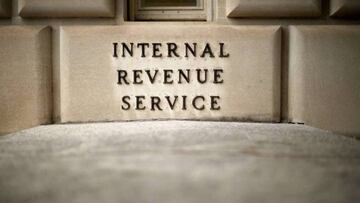Stimulus check: why are some people still waiting for payment?
Around 159 million coronavirus Economic Impact Payments have now been sent out, but there are still qualifying Americans yet to receive stimulus money.

The Internal Revenue Service (IRS) and United States Department of the Treasury revealed on Wednesday that 159 million Economic Impact Payments (EIPs) have now been processed as part of the CARES Act, a $2.2tn relief package aimed at addressing the country’s financial needs amid the coronavirus pandemic.
Eligible Americans still to receive their money
However, they added that despite their efforts to get almost $267 billion and counting to people in the US, some are still missing out on their money. "There are eligible Americans who still did not yet receive their payments, and need to take action," the Treasury said.
Here are some reasons why people might still be waiting for stimulus money:
- Stimulus check: how does the government create stimulus payments
- What affects the approval of a second stimulus check bill?
- What is the "Digital Dollar" option being discussed by Congress?
- Stimulus check: will there be a second round of payments in June?
- Second Stimulus Check: when will I know what the payment date is?
- What is known so far about the second payment of $1,200?
Non-filers who haven't provided details
Individuals who don’t normally file a tax return and haven’t provided their payment details should use the Non-Filers tool on the IRS website to do so. The tool will remain available until 15 October, and those who enter their information by that date will receive their EIP by the end of 2020, the IRS and the Treasury say.
Please note, however, that non-filers should get their stimulus payment automatically if they receive Social Security retirement, disability (SSDI) or survivor benefits, Railroad Retirement benefits, Supplemental Security Income (SSI) or Veterans Affairs (C&P) benefits.
Bank-account details wrong
The deadline has passed for tax filers to use the IRS' 'Get My Payment' portal to update their bank details (except, it appears, if a mailed check cannot be delivered; see below). If your payment doesn't go through because the direct-deposit information that the IRS has on record is incorrect and/or out of date, says the IRS, your check "will be mailed to the address we have on file for you".
USPS unable to deliver stimulus check
If the United States Postal Service (USPS) was unable to deliver your check and returned it to the IRS, the body will update your payment status in the 'Get My Payment' tool to "Need More Information". You will then be able to enter your bank details to receive your check by direct deposit instead, says the IRS.
Accidentally discarded EIP Card
The Treasury and the IRS revealed last month that they had begun mailing out around four million checks in the form of prepaid debit cards, known as EIP Cards. “Prepaid debit cards are secure, easy to use, and allow us to deliver Americans their money quickly,” said Secretary of the Treasury Steven T. Mnuchin.
However, the design of the EIP Card, and the envelope it comes in, has caused some recipients to mistake it for junk mail, leading them to unwittingly throw away their stimulus check. If you have mistakenly discarded your EIP Card, or lost it or had it stolen, call 1-800-240-8100 or go online to www.eipcard.com.
Eligible tax filers not given a check
Tax filers not granted a stimulus check who believe themselves to be eligible will be able to claim their payment when they submit their 2020 return next year, the Treasury says. If you can’t wait until then, however, you can call 800-919-9835.
Payment amount wrong
Tax filers who have received their EIP but did not get as much as they believe they qualified for, or missed out on a $500 dependent credit, will have to wait until next year to correct the issue. “If you did not receive the full amount to which you are entitled, you will be able to claim the additional amount when you file your 2020 tax return,” the Treasury says.
Live coverage of the coronavirus pandemic
At the time of writing, there had been 1,897,838 confirmed coronavirus cases in the United States, leading to 109,143 deaths. You can stay up-to-date with the latest Covid-19 news as it emerges in America with our live, US-focused coverage.





